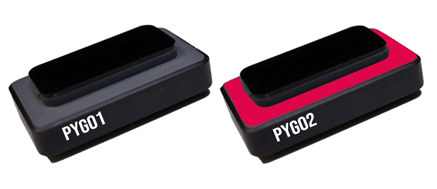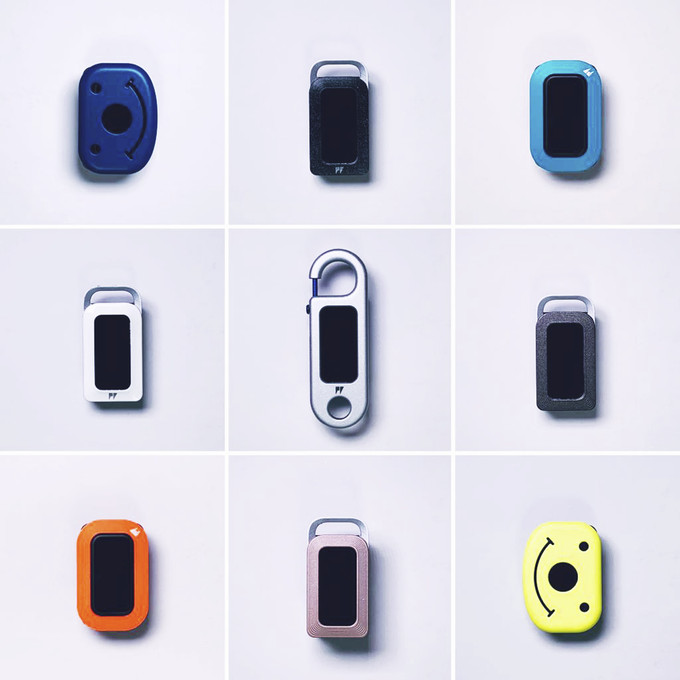Pycom has made some interesting IoT boards running MicroPython in the past starting with WiFi capable WiPy in 2015, and followed by various others supporting various wireless standard including Bluetooth, LoRa, Sigfox, and NB-IoT with LoPy and Fipy.
The company launched all their boards via crowdfunding campaigns, and they are now back on Kickstarter for their PyGo plug-n-play wearable devices creating PyMesh networks with up to 12km range between nodes, and managed using Pylife mobile app.
Typical use cases include basic connectivity (e.g. messaging) in remote areas without cellular access, and assets / pets / kids location tracking, There are two version of PyGo: PyGo1 with mesh networking only, and PyGo2 that adds cellular network access.
- SoC – Espressif Systems ESP32 dual core WiFi 4 + BLE SoC
- System Memory – 64 Mbit (8MB) RAM
- Storage – 8MB flash
- Display – 128×36 OLED display
- Connectivity
- PyMesh up to 200 devices
- LoRa including auto-connect to the Things Networks, range up to 12 km
- Sigfox capable, but not switched on in the first model. It can be enabled during deployment.
- Long range WiFi up to 1 km @ 16 Mbps
- Bluetooth LE
- Pygo2 only – LTE Cat M1 and NB-IoT cellular connectivity
- Location – GPS, GLONASS, Galileo, BeiDou
- Sensors – Accelerometer, piezo touch screen sensing,
- Battery – 420 mAh LiPo battery good for up to 5 days depending on use; wireless AirFuel charging.
- Dimensions – 41 x 24 x 12.5 mm
- Weight – Pygo1: 24 grams; Pygo2: 26 grams.
- IP Rating – IP67
That’s plenty of connectivity options, and PyMesh is achieved with a LoRa radio, and using the OpenThread implementation of the Thread protocol. PyMesh supports up to 256 nodes inside a mesh network, routes packet to WiFi, Bluetooth, or cellular as needed, and works as CoAP client.
The company will also provide various PyGo Clips to facilitate attachment to clothes, pets, etc.. including a sports clip, a child clip, a jewelry clip, a carabiner for pets collars and bag attachments, a bicycle attachment, and a keyfob.
PyGo devices are supposed to be plug and play thanks to the Pylife app, but customization is also supported via Pymakr IDE, and Pylife app provides a an IFTTT style environment for light programming with MicroPython.
Pygos are mostly useful with at least two devices, but rewards start at 46 Euros for a single Pogo 1 with the wireless charger and a clip of your choice, while Pogo2 goes for 74 Euros. The more popular Pogo1 and Pogo2 twin packs start at 81 Euros and 109 Euros respectively. Shipping adds 6 Euros, and you’d have to wait until June 2019 before receiving your rewards. Some more details may be found on Pylife website.

Jean-Luc started CNX Software in 2010 as a part-time endeavor, before quitting his job as a software engineering manager, and starting to write daily news, and reviews full time later in 2011.
Support CNX Software! Donate via cryptocurrencies, become a Patron on Patreon, or purchase goods on Amazon or Aliexpress







What about redoing the mesh feature with some ttgo boards? they have an esp32 with lora and a screen.
I hope the mesh is over BLE or Wifi, since Lora is heavily restricted due to 1% duty cycle.
The mesh is over LoRa. The solution actually looks similar to Sonnet @ https://www.cnx-software.com/2017/07/24/sonnet-is-a-rugged-portable-device-creating-mesh-networks-for-smartphones/ , except they did not claim to use LoRa just 433Mhz, 868 MHz, and 915 MHz ISM bands.
You’re thinking of LoRaWAN (I think). Use a LoRa radio and you can transmit whatever you want.
no external antena
small range
no solar panel or AA accumulator. What i to do after 2-3 years?